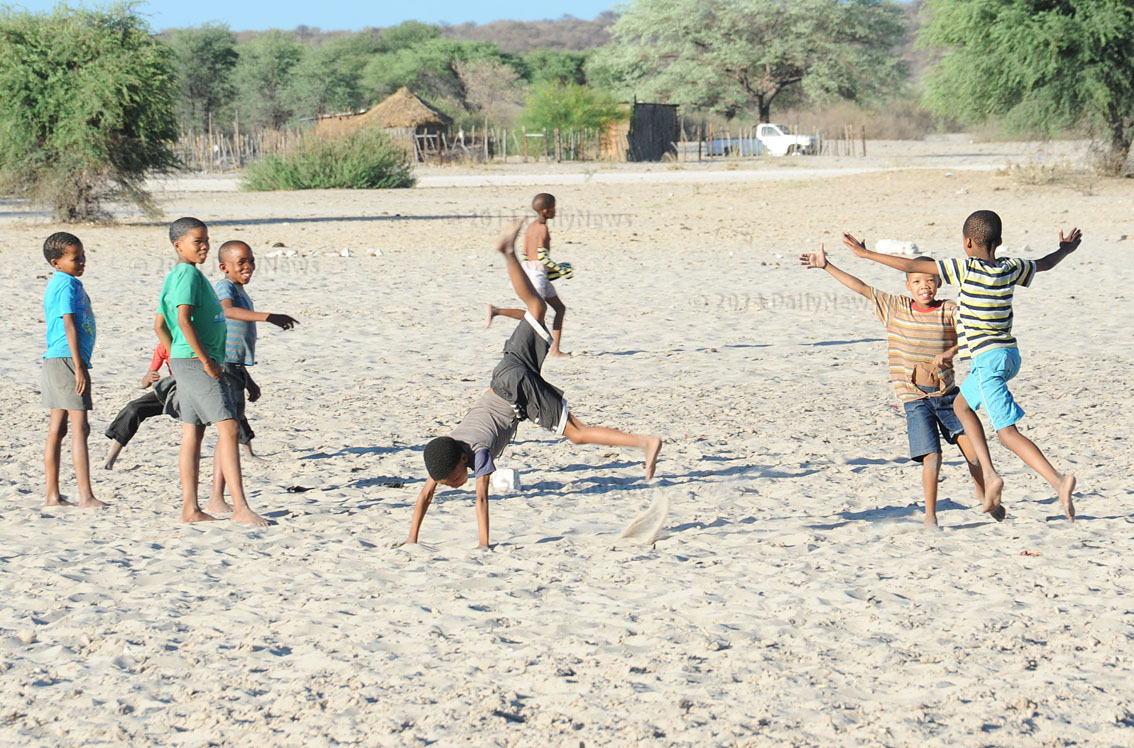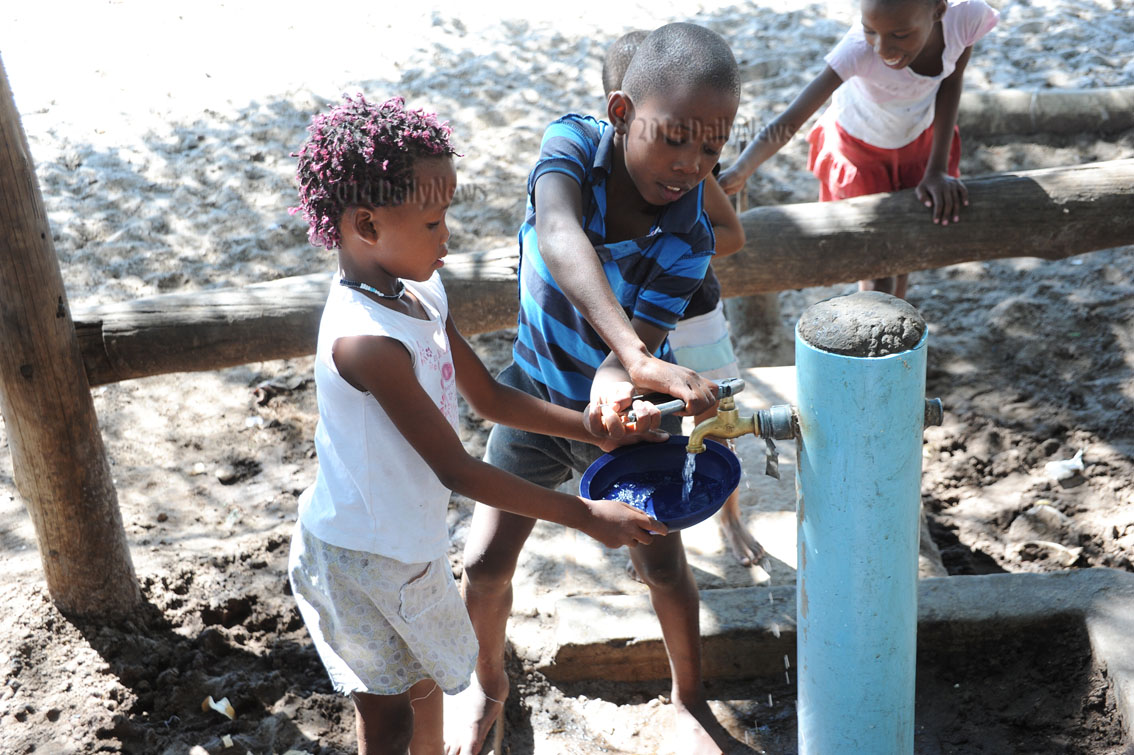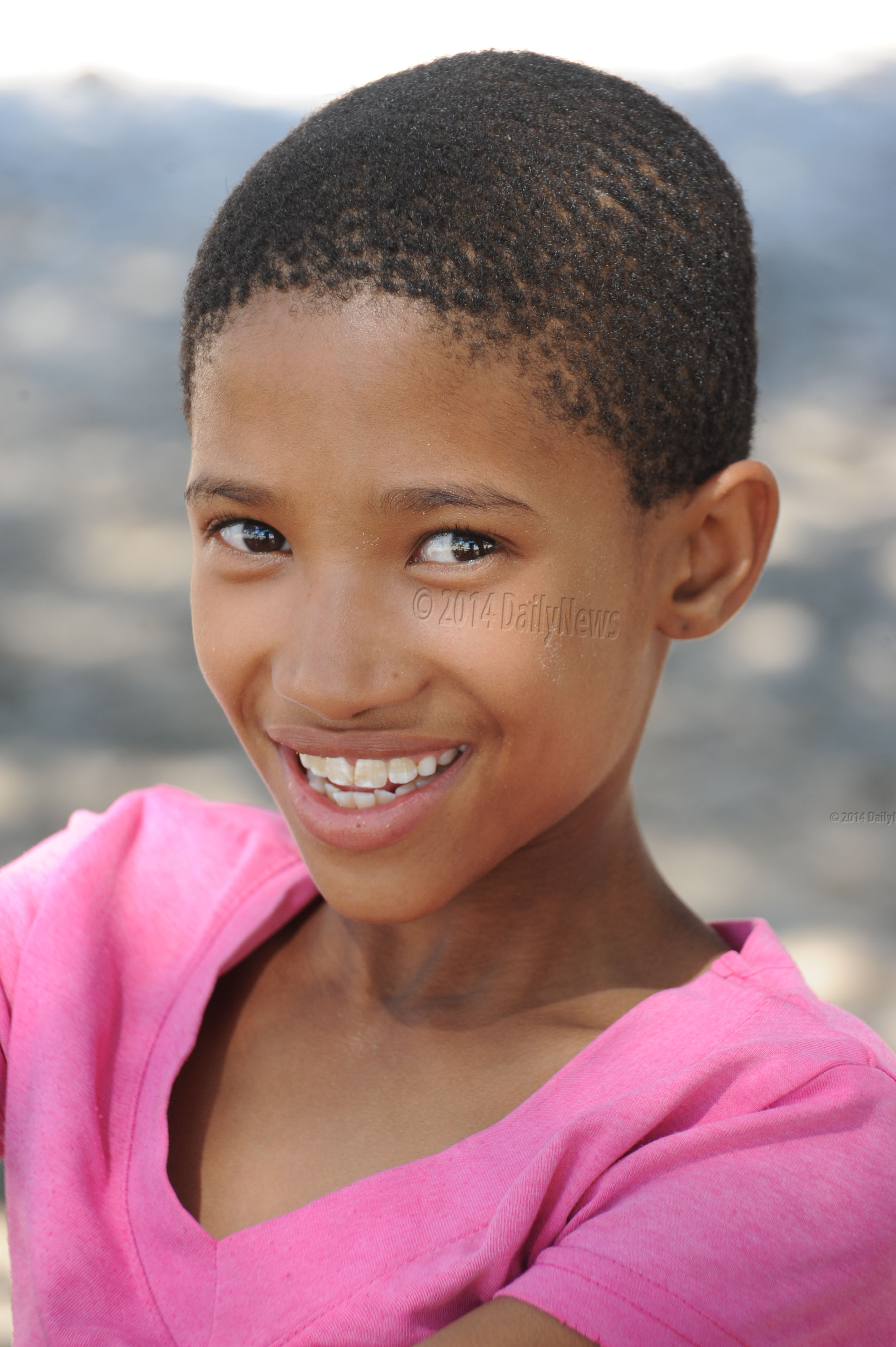Marvel that is East Hanahai children
05 Mar 2014
Children are always a marvel to observe, in fact most people believe children are a blessing.
One just needs to spend a day in East Hanahai to validate such an entrenched belief. This is a remote village deep in the middle of the Kalahari desert, populated at most by 600 people.
Remote yes, given the cumbersome access to East Hanahai from the nearest major service centre, Ghanzi. In fact, even the less than adequate infrastructure in the village makes it all the more remote. Simply put, better life is only seen from civil servants who have come to provide basic means of survival to the residents.
Even government, their employer, pays them remote area service allowance to cushion them against the hardships of living in East Hanahai. However, judging from the mingling and interaction of children here, there is really nothing to worry about.
This is a classic case where innocence or naivety saves one from drowning in the hardships of East Hanahai, a predominantly Basarwa populated village albeit with drops of Bakgalagadi. The honey pot, it appears, is the village stand pipe, just a stone’s throw away from the primary school.
A huge mokala tree provides ample cool shade for the young ones as they assemble, impromptu it seems, in the afternoon where they mingle and in the process break whatever social barriers exist in adult society.
At least four languages; Setswana, Sesarwa, Sekgalagadi and English, are used interchangeably during the high pitched unrehearsed games that define the central mokala which has become a daily magnet for the uninitiated.
There is no order of precedence for the games here, one with the loudest voice will surely attract followers and soon everybody is into it.
In one minute, children are mimicking a train, through the sound, the “mechanical” locomotion of their meandering movement, and at the blink of an eye the whole crew is now singing a chorus in unison.
Flexible and impromptu as the assembly appears, there are however, some self-imposed ring leaders who direct how the proceedings should unfold.
They issue instructions, pick and choose team mates, intimidate their competitors and to some extent instil discipline among their peers. “Sit down I am talking,” shouts one Sandra Abdul who has become the equivalence of a centre city girl in netball.
Almost all activities revolve around Sandra; in one instance she is a teacher in the next she is being ridiculed for her ‘clumsiness’ in a game she does not master. “Shee, Sandra ke lekgoa, ha ha ha,” one boy laughs as he drives off his wire crafted off road van.
The only distinctive feature from this innocent group is the skin pigment, light skinned ones are Basarwa while dark ones are Bakgalagadi and other Setswana speaking tribes.
Language however, is not an issue. They simply switch codes as if they are professors of linguistics. Also, tidiness is a virtue under the mokala tree. Spotless faces, very clean boys and girls all at primary school.
The ‘protagonist’ of the day, Sandra is ten years, doing Standard Four and she wants to work in the bank. As the day progresses, Sandra decides to go home while the rest of the crew shift to the football pitch.
Teams are selected immediately and fans divide themselves among the two teams. There is no kit for either team but identifying one’s teammate during the game seems very easy.
Tact and footballing skill reign supreme here, dribbling accounts for almost half of the whole duration of the game. How amazing can children be, there is not even a referee in this game but there is never an argument regarding a foul.
A chorus just ensues ‘goo moo ke huku moo,’ asserting a corner kick spot and nobody queries. Wait until one team scores a goal, whew, celebrations never seen before erupt as fans ransack the football pitch intimidating their opponents, some tumble in the air, some skid on the sand while some shout slogans of victory.
Unlike in adult competitive sport, there is no love lost here, no insults are hurled, no sour grapes displayed, and after all this is sport, entertainment in fact.
Just by observing how child life unfolds in East Hanahai, one now understands the proverbial analogy that heaven must be the sweetest place on earth. In that context East Hanahai is not as remote as geography has placed it. ENDS
Source : BOPA
Author : Rebaone Tswiio
Location : EAST HANAHAI
Event : Feature article
Date : 05 Mar 2014









